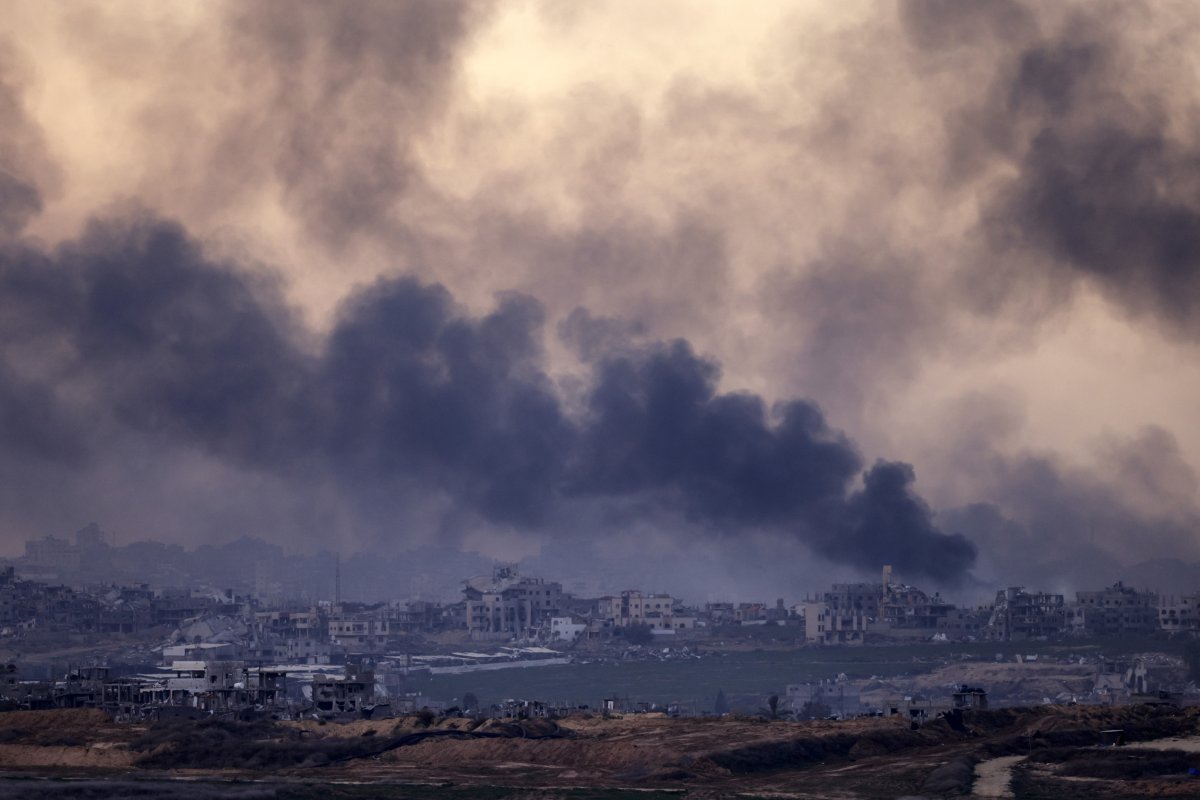A Hamas leader has told Newsweek that President-elect Donald Trump should exert pressure on Israeli Prime Minister Benjamin Netanyahu to accept a ceasefire deal in order to meet the U.S. leader's looming deadline for an agreement.
"I believe that we can go to an agreement immediately if Netanyahu and his government stop stalling and obstructing the agreement for flimsy reasons," the Hamas leader told Newsweek, speaking on the condition of anonymity, "and this is what many Israeli political and military leaders themselves have confirmed recently."
"We are ready to go to an agreement immediately that guarantees a permanent ceasefire, the withdrawal of all Israeli forces from the Gaza Strip, the return of the displaced by force to their homes without restrictions, and the achievement of a serious deal for prisoners from both sides," the Hamas leader continued.
"Therefore," the Hamas leader added, "we hope that President Trump and his team will pressure Netanyahu and his government to move forward in achieving the deal."

Why This Matters
The remarks came hours after Trump on Tuesday reiterated an earlier ultimatum that "all hell will break out in the Middle East" if roughly 100 hostages still held by Hamas since its October 2023 attack on Israel were not freed before his upcoming January 20 inauguration.
With less than two weeks to go, however, negotiations appear to remain deadlocked and both sides continue blaming one another for obstructing progress despite recent developments.
What To Know
Israeli officials have estimated that around 1,200 people were killed and 250 taken hostage when Hamas launched its October 7, 2023, surprise attack against Israel, sparking the longest and deadliest war of the decades-long Israeli-Palestinian conflict—as well as a broader confrontation between Israel and the Iran-led Axis of Resistance coalition. More than 100 hostages have since been released, most of them through a short-lived ceasefire deal reached just over a month into the conflict.
Throughout the course of the war, nearly 46,000 people have been killed in Gaza, according to the Palestinian Health Ministry based in the Hamas-led territory. The Israel Defense Forces (IDF) has recorded around 400 deaths among its ranks in Gaza while claiming to have killed approximately 18,000 fighters of Hamas and allied Palestinian factions, including senior leaders.
Reuters cited a Hamas official on Sunday as saying that the group had agreed to the release of 34 hostages presented by Israel in the event of a deal. The following day, Saudi newspaper A-Sharq Al-Awsat released the names of the 34 individuals on the list, which was later confirmed by several other outlets, including the Associated Press, BBC News and NPR.
Netanyahu's office said Monday that those included on the list were indeed part of a list provided to mediators in July of last year, but that "Israel has not received any confirmation or comment by Hamas regarding the status of the hostages."
A number of hostages are believed to have died during captivity. Last month, Hamas said that 33 detainees had been killed through the conflict and that more had gone missing, blaming Netanyahu for the situation.
The Hamas leader with whom Newsweek spoke said that "the movement has no problem releasing additional names even though they violate the agreed upon criteria of a 'humanitarian deal' (sick, elderly, women), but certainly, these additional names (young soldiers) must be dealt with according to the negotiated criteria for this category."
U.S. President Joe Biden's administration has continued its push for an agreement in line with a three-phase proposal first released by the White House in May.
The deal, as initially presented, would entail a six-week ceasefire including the release of living women, children and elderly hostages by Hamas in exchange for the release of hundreds of Palestinian prisoners, a surge in Israeli aid to Gaza and the withdrawal of Israeli troops from population centers. The next phase would involve the release of all living Hamas hostages in exchange for additional Palestinian prisoners, a lasting cessation of hostilities and total Israeli withdrawal, followed, finally, by the release of deceased hostages by Hamas and the reconstruction of Gaza.
Representatives of Israel and Hamas have presented conflicting portrayals of these terms, however, with talks repeatedly unraveling amid ongoing battles in Gaza. Meanwhile, both sides face international scrutiny over their wartime actions.

What People Are Saying
A Hamas leader in comments shared with Newsweek on Tuesday: "Unfortunately, Netanyahu and his government are still stalling and sabotaging any opportunity to reach an immediate ceasefire. They still refuse to confirm that we will sign a ceasefire agreement and not a suspension of military operations (a temporary ceasefire), and they refuse to provide maps for the withdrawal from the Gaza Strip as agreed upon (a gradual withdrawal).
"They also insist on remaining in the Philadelphi corridor until the second stage, even though the agreement based on the Israeli paper on May 27th confirms a complete withdrawal in the first stage."
Israeli Consul General in New York Ofir Akunis in a statement shared with Newsweek on Tuesday: "The brutal terrorist organization Hamas -- which was responsible for the largest massacre of Jews since the Holocaust on October 7 -- continues to spread baseless lies and falsehoods. Even senior officials in the U.S. administration explicitly stated that Israel has agreed to the deal, and its implementation now depends solely on the agreement of Hamas.
"Their lies have long been exposed to the entire world, and their claims regarding the deal are as false, as are their denials about using mosques, schools, and kindergartens to launch rockets at the State of Israel and target innocent civilians."
Trump during a news conference on Monday: "If those hostages aren't back—I don't want to hurt your negotiation—if they're not back by the time I get into office, all hell will break out in the Middle East. And it will not be good for Hamas, and it will not be good frankly for anyone. All hell will break out. I don't have to say any more, but that's what it is."
What Comes Next
The recent lack of progress in renewed ceasefire talks has dampened initial hopes raised last month by both Israeli and Hamas officials as they reentered talks in the Egyptian capital of Cairo.
Trump's latest warning has also underscored his determination to avoid inheriting a conflict over which he has criticized not only Hamas but his longtime ally Netanyahu. Still, the Israeli premier has exuded confidence over what he publicly expects to be a friendly administration in Washington, while Hamas officials continue to appeal for a shift in U.S. strategy.




















 English (US) ·
English (US) ·